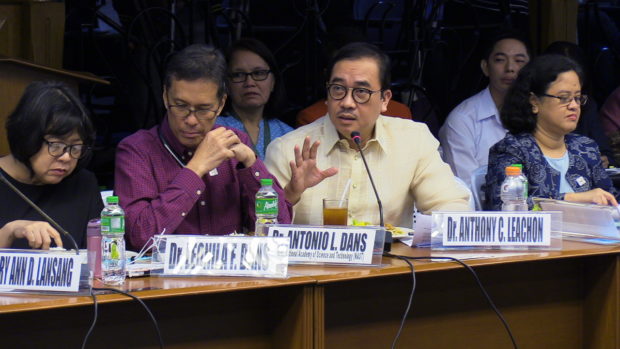“How could you blame the President if he was fed (with) wrong information?”
This was the reaction of a health reform advocate when asked if former President Benigno S. Aquino III should be held liable for the government’s controversial P3.5billion anti-dengue immunization program, which implementation began during his term.
“I was asked the other day, whether the ex-president and secretary of health is liable for this one. My answer is basically, if the bad science or wrong information has been fed to the president, how could you blame the President if he was fed by wrong information and even WHO (World Health Organization) or even (former Health) Secretary (Janette) Garin?” Dr. Anthony Leachon told the panel.
Before this, another health expert from the National Academy of Science and Technology (NAST) clarified that the main problem was that “bad science mixed with politics.”
“Because there was no policy to separate politics and science the FDA is under the DOH (Department of Health), then we lose the check and balances. FDA should be independent from DOH,” Dr. Antonio Dans said.

Dr. Antonio Dans and Dr. Anthony Leachon at the Senate hearing on the P3.5 billion anti-dengue immunization program of the Department of Health, which commenced during the Aquino administration. (INQUIRER.net / CATHY MIRANDA)
The problem, Leachon said, was that when this particular problem was brought to Aquino, “he thinks this has a sense of urgency.”
“And then policy makers will interfere with the experts and scientists, that’s the problem,” Leachon said.
“So, we cannot mix science and health and politics. But it all started with the bad science and deceptive or wrong information, Sir,” he added.
The Senate committees are investigating the Dengvaxia mess which was implemented in 2016 and administered to more than 830,000 children, and another 12,000 members of the uniformed personnel and their families.
Its manufacturer, Sanofi Pasteur, released a recent advisory, which said that Dengvaxia could cause worse symptoms of dengue to those who were immunized with it but had not been previously infected by dengue. /kga

